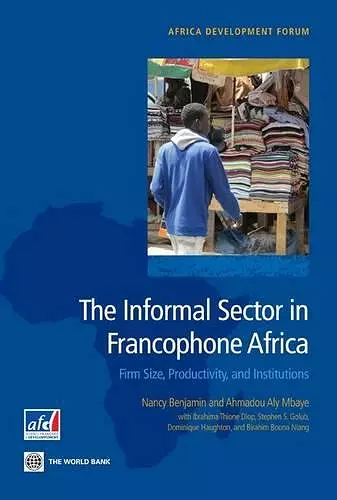The Informal Sector in Francophone Africa
Firm, Size, Productivity, and Institutions
Dominique Haughton author David L Hill author Robert P Hughes author Stephen S Golub author Shirli Brautbar author Nancy Benjamin author
Format:Paperback
Publisher:World Bank Publications
Published:22nd Jun '12
Currently unavailable, and unfortunately no date known when it will be back

The informal sector in West Africa has some distinctive characteristics. Informality usually connotes small and unorganized producers operating on the fringes of the formal economy. In West African countries, however, the normal situation is to some extent reversed: a dynamic informal sector dominates the stagnant formal economy. Moreover, in these countries, small operators coexist with very large and politically well-connected informal enterprises and well-organized networks. Notwithstanding its importance, there have been relatively few systematic studies of this dual feature of the informal sector in West Africa, and consequently too little is known about it. One of our hypotheses is that determinants and appropriate policy responses are likely to differ between “large” and “small” informal operations. This volume focuses on the urban informal sector in three capital cities: Dakar (Senegal), Cotonou (Benin) and Ouagadougou (Burkina Faso). These three countries have important differences and as a group, are quite representative of francophone West Africa and to a lesser extent West Africa as a whole. The authors use a mix of quantitative and qualitative approaches with data obtained from our new Bank surveys of 900 firms in the three cities, interviews with knowledgeable stakeholders and participants, and all available secondary data. For the surveys, the authors designed their sampling strategy to include three distinctive categories of firms: formal, small informal, and large informal. In addition, they developed a comprehensive definition of informality to reflect its complexity and heterogeneneity. The definition (Chapter 1) covers six components of informality, whereas previous definitions are generally limited to a binary classification based on one or two indicators. The results for West Africa corroborate many findings from earlier studies, particularly for small informal firms. In addition, the authors break new ground by shedding light on the large informal sector and the influence of institutional and socio-cultural factors in shaping the informal sector.
ISBN: 9780821395370
Dimensions: unknown
Weight: unknown
300 pages